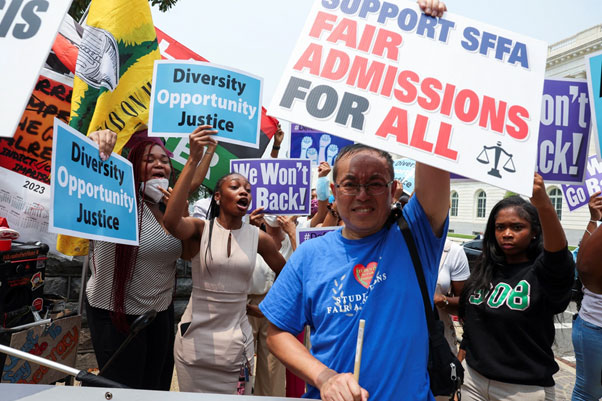
Introduction:
The U.S. Supreme Court concluded its most recent term by issuing controversial opinions. Two of these decisions are significant for employers, addressing race-based university admissions programs and religious accommodations for employees. While these rulings provide necessary clarifications, they do not directly alter existing employment-related laws. Nonetheless, they may impact employers' diversity initiatives and potentially increase religious discrimination claims.
I. U.S. Supreme Court Invalidates Race-Based University Admission Programs, Raising Questions for Employers
On June 29, 2023, the Supreme Court ruled on two companion cases, Students for Fair Admissions, Inc. v. President and Fellows of Harvard College and Students for Fair Admissions, Inc. v. University of North Carolina et al., declaring that Harvard's and the University of Carolina's race-based admissions programs violated the Equal Protection Clause of the Fourteenth Amendment.1
The Court's decision does not alter the existing laws regarding employers' consideration of race in employment decisions. However, it provides some insight into the Court's perspective on race-based policies in the employment context and may support challenges against corporate diversity, equity, inclusion, accessibility programs, and affirmative action policies.
Key Points from the Supreme Court's Decision:
The Court examined whether the admissions systems used by Harvard College and UNC complied with the Equal Protection Clause of the Fourteenth Amendment, which prohibits states from denying equal protection under the law.
The Court established that race-based college admissions must adhere to strict scrutiny, meaning they must serve compelling governmental interests and be narrowly tailored to achieve those interests. In this case, the Court determined that the admissions programs failed to meet these requirements, despite good intentions and implementation.
The Court clarified that while race could be considered in an applicant's discussion of how it influenced their life experiences, universities should avoid using race as a basis for preferential treatment. Instead, they should focus on individual attributes, such as overcoming discrimination or exhibiting leadership qualities, rather than making broad assumptions based on race.
Following the Supreme Court's decision, the Chair of the U.S. Equal Employment Opportunity Commission issued a statement emphasizing that it remains legal for companies to establish workplace diversity, equity, inclusion, and accessibility programs. These programs aim to ensure equal opportunities for workers from diverse backgrounds. However, the Chair expressed concerns about the decision's potentially adverse effects on recruitment and hiring, as it may hinder efforts to create various talent pipelines.
Similarly, the Secretary of the U.S. Department of Health and Human Services noted that the ruling may impede progress in making higher education more accessible to historically underrepresented groups. The statement highlighted the ongoing need to address the underrepresentation of Black and Latino doctors and medical students, suggesting that the decision could exacerbate the deficit.
It's important to note that the Supreme Court's decision does not directly impact existing employment-related laws. Employers can still maintain compliant equal employment opportunity and affirmative action policies. Nevertheless, lower courts may draw parallels between the Court's decision and employment discrimination cases under Title VII of the Civil Rights Act of 1964, potentially leading to increased scrutiny of diversity, equity, and inclusion initiatives. Employers must avoid implementing racial hiring quotas or taking adverse employment actions based on protected class status, as these actions may invite race-based litigation and "reverse" race discrimination claims.
II. Supreme Court Clarifies Employer Obligations in Religious Accommodation Requests
In the case of Groff v. DeJoy, the Supreme Court revisited its earlier decision in Trans World Airlines, Inc. v. Hardison to clarify employers' obligations when considering requests for religious accommodations under Title VII of the Civil Rights Act of 1964.
The Court aimed to define what constitutes an "undue hardship on the conduct of the employer's business" when assessing religious accommodation requests. The ruling in Groff v. DeJoy introduced a higher standard, requiring employers to demonstrate that the requested accommodation imposes substantial burdens on the overall context of their business rather than mere de minimis costs.
Conclusion:
The recent U.S. Supreme Court decisions on race-based university admissions and religious accommodations have potential implications for employers. While the rulings do not directly alter existing employment-related laws, they offer insights into the Court's views on race-based policies and the level of burden required for religious accommodations. Employers should remain mindful of these developments to navigate diversity initiatives, avoid race-based litigation, and handle religious accommodation requests appropriately.




